Canva Takes Non-Subscription Aim At Adobe In Major Buyout—Should Users Worry?
By Mikelle Leow, 29 Mar 2024
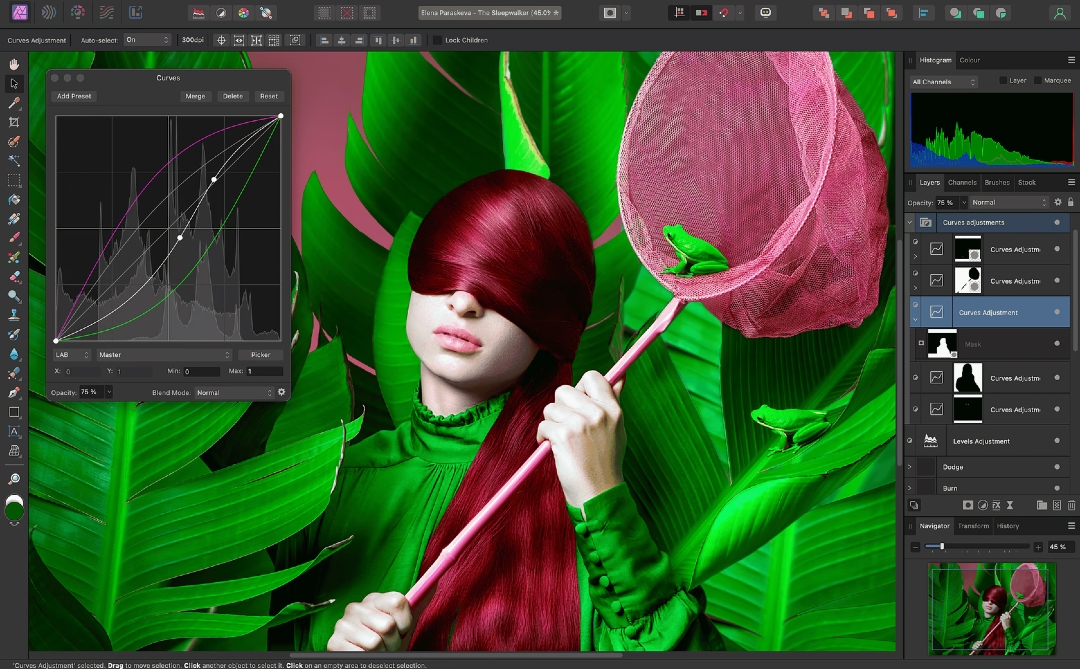
Affinity software. Image via Canva
Canva, the ubiquitous online design platform known for its user-friendly interface and drag-and-drop functionality, has made its most strategic move yet. In a recent acquisition valued at “several hundred million pounds” (approximately US$380 million), Canva absorbed the UK-based Affinity, developer of the popular professional design software suite.
This bold transition is widely seen as a direct challenge to Adobe’s long-held reign in the creative software market. While Canva has carved a niche for itself catering to beginners and non-designers, Affinity’s offerings—Affinity Designer, Photo, and Publisher—boast features that rival Adobe's industry-standard suite (Photoshop, Illustrator, InDesign). This acquisition may further enable Canva to compete more effectively with Adobe Express, the simplified design offering within the Creative Cloud suite.
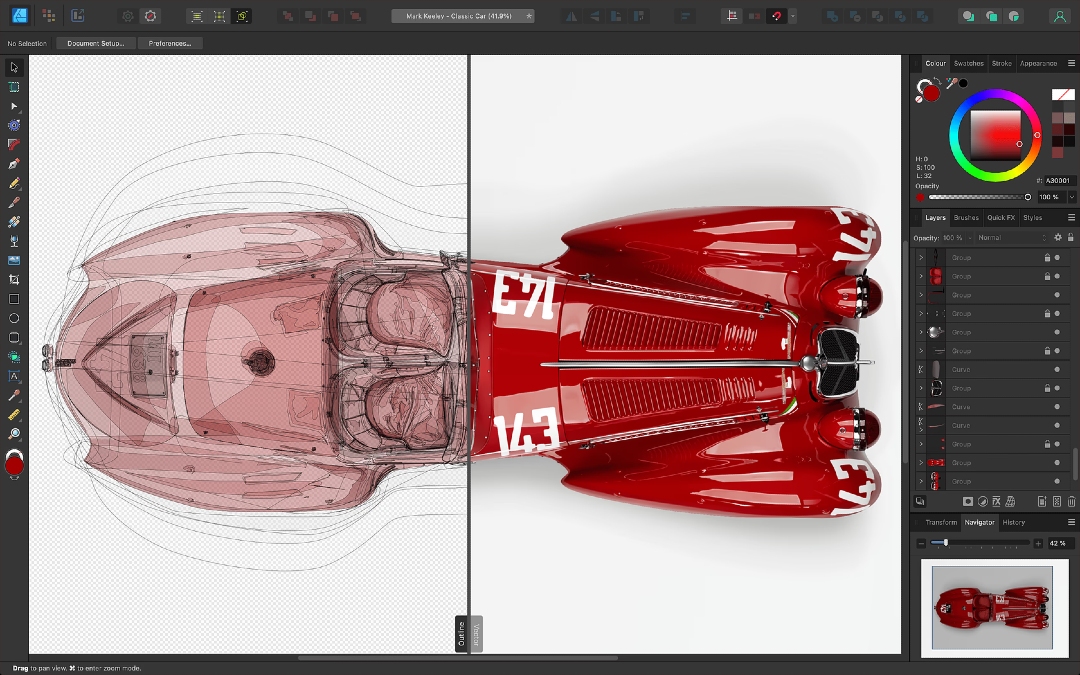
Affinity’s vector graphics software. Image via Canva
Canva co-founder Cliff Obrecht framed the buyout as a way of “empowering every kind of designer,” bridging the gap between their user base and professional design needs.
“While our last decade at Canva has focused heavily on the 99% of knowledge workers without design training, truly empowering the world to design includes empowering professional designers too,” Obrecht shared in a blog post. “By joining forces with Affinity, we’re excited to unlock the full spectrum of designers at every level and stage of the design journey.”
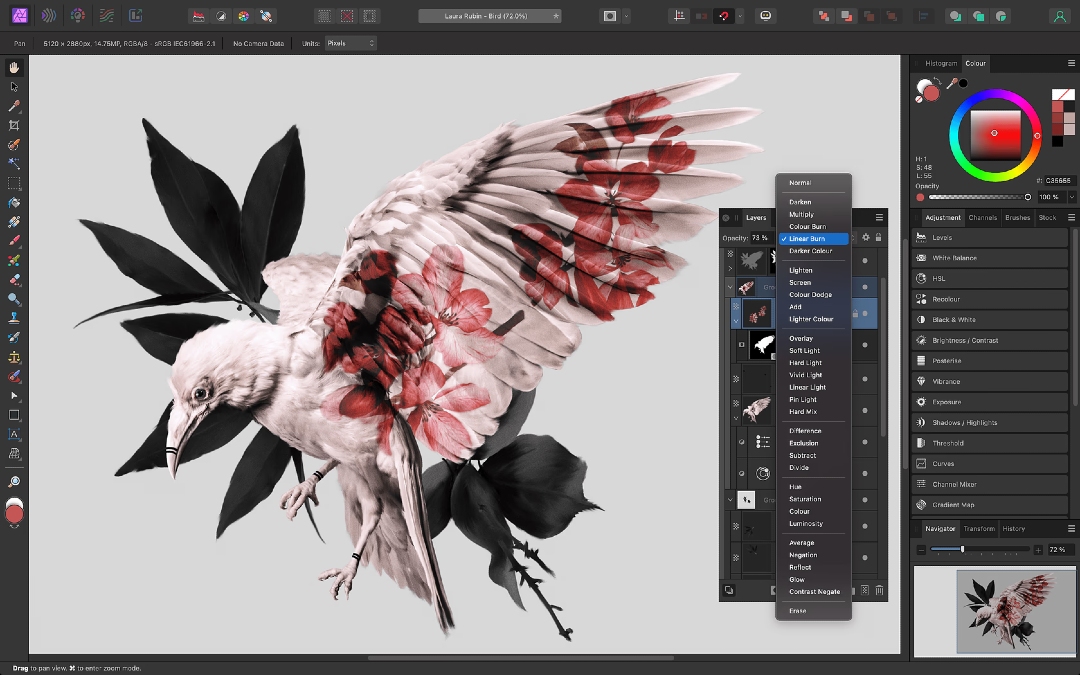
Affinity Photo. Image via Canva
What the future holds for Affinity’s users
In a statement, Affinity asserted that Canva intends to carve “a suite of professional tools to offer their enterprise customers,” primarily “businesses with multiple users, including pro designers,” out of the deal.
The long-term implications of this acquistion remain to be seen, but Affinity CEO Ashley Hewson assured users in an announcement that “nothing changes.”
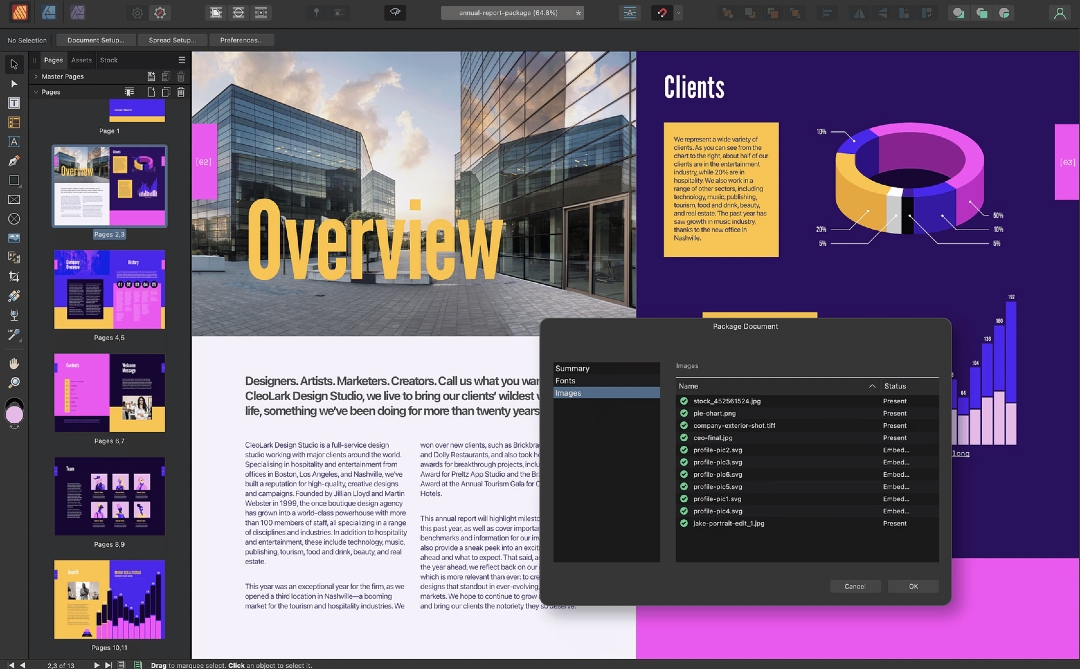
Affinity Publisher. Image via Canva
“All of our team is still here, there’s no layoffs or changes in that regard whatsoever, and we’re more focused than ever to deliver some incredible updates and improvements to our apps moving forward,” said the Affinity boss.
Hewson added that Affinity’s tools will still be available on its website and that Affinity’s V2 app will remain a one-time purchase option, with “great updates” arriving on the software soon at no additional cost, “and everyone who’s bought our apps previously, of course, can still use them in perpetuity.”
However, how effectively Canva integrates Affinity’s sophisticated tools will be a key factor in its success against Adobe. Canva currently offers a freemium model with paid tiers. Affinity’s software is one-time purchase. How Canva plans to monetize Affinity’s users is unclear.
Affinity also prides itself on being a viable, affordable alternative to Adobe’s often-criticized subscription model. This raises questions about whether Affinity’s features would eventually be incorporated into paid tiers, henceforth squeezing out open-source alternatives.
There are no changes to our current pricing model planned at this time, with all our apps still available as a one-off purchase. Existing Affinity users will be able to continue to use your apps in perpetuity as they were originally purchased – with plenty of free updates to 1/2
— Affinity (@affinitybyserif) March 26, 2024
The choice of words used in Affinity’s FAQs hasn’t helped to allay users’ fears. “There are no changes to our current pricing model planned at this time,” Affinity commented, stating that there’ll be “plenty of free updates… to look forward to.”
Addressing concerns that it may switch to the dark, membership-based side, Affinity introduced four new pledges for fair pricing, acceleration, accessibility, and keeping the community together going forward. “Perpetual licenses will always be offered and we will always price Affinity fairly and affordably,” said the company. It revealed that Affinity products will soon be available to schools and nonprofits for free.
“If we do offer a subscription, it will only ever be as an option alongside the perpetual model, for those who prefer it,” Affinity outlined in its FAQs. “This fits with enabling Canva users to start adopting Affinity. It could also allow us to offer Affinity users a way to scale their workflows using Canva as a platform to share and collaborate on their Affinity assets, if they choose to.”
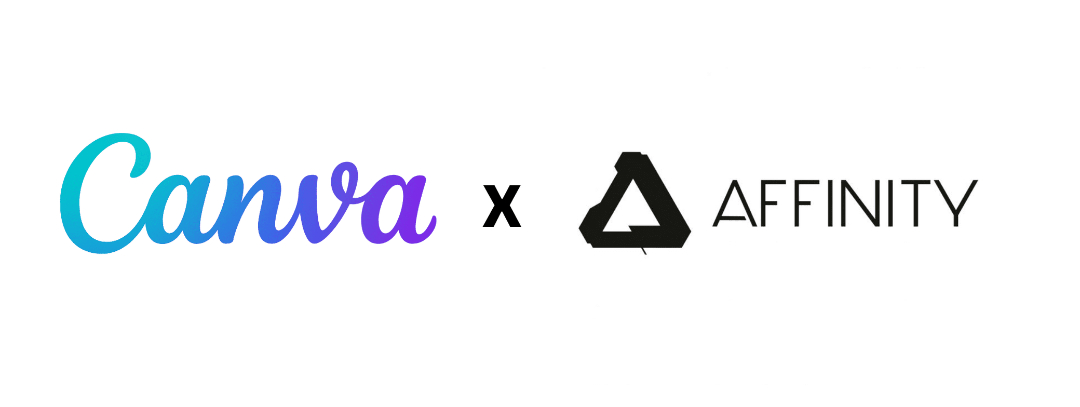
Image via Canva
[via Ars Technica and TechCrunch, images via Canva]





